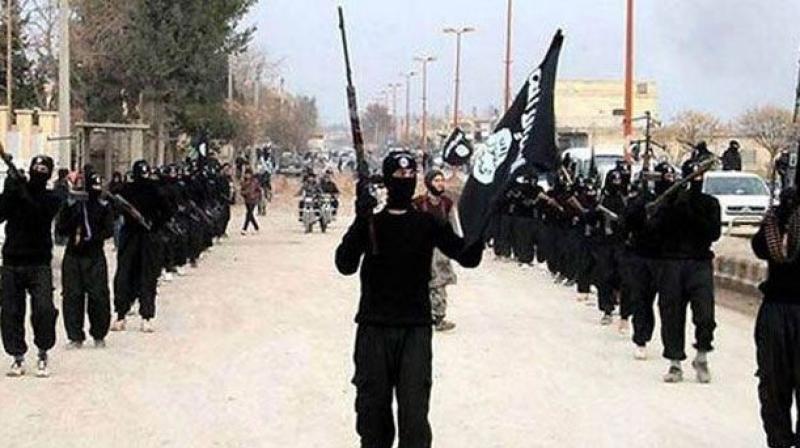ISIS trickling out of Mosul as losses mount: US General

Baghdad: ISIS fighters are trickling out of Iraq's Mosul as the jihadists suffer heavy casualties, the general overseeing American military operations in the region told AFP on Thursday.
Army General Joseph Votel, head of the US military's Central Command, said groups of half a dozen or fewer ISIS fighters have been seen slipping out of the city as US-backed Iraqi and Kurdish peshmerga forces close in.
Some of them dump weapons and try to look like civilians, making it hard for coalition drones and planes to track them, Votel said, but some presumably are headed toward Raqa, the ISIS group's Syria stronghold.
"They don't have uniforms, so it is a little bit of a challenge. These aren't big groups, they aren't moving in military formations," the four-star general said, speaking from an undisclosed military base in Southwest Asia.
"There are some that will get away, and I think that happens in a lot of cases. Nothing is 100 percent, but in this case we are doing a pretty good job."
Between 800 and 900 jihadists have been killed in and around Mosul since the Iraqi-led operation to recapture the city began 10 days ago, he added.
Earlier US estimates had put the total population of IS fighters in Mosul itself at between 3,500 and 5,000.
Up to another 2,000 were thought to be in the broader region.
Votel cautioned it was hard to provide precise numbers as ISIS fighters move around the city and blend in with the local population.
The jihadists have quit Mosul from the west side, which has not been sealed by Iraqi forces.
Some strategists question the Iraqis' decision to leave part of the city open, but Votel said there were advantages to doing so.
"It certainly provides a way for the refugees of the population to get out of there," the general said, and "it does provide an opportunity to limit destruction in the city itself".
Aid groups are bracing for an exodus of Mosul residents as the battle enters the city proper.
The United Nations says more than 10,000 people have already been displaced.
Votel said he had spoken with Iraqi military leaders late Tuesday who told him that, as of that time, 57 Iraqi security forces had been killed and about 255 wounded.
For the Kurdish peshmerga, numbers were lower, with about 30 killed and between 70 and 100 wounded.
'Know What We Are Shooting At'
Despite the heavy casualties, the jihadists still think they can retain control over Mosul, Votel said, because "some of their fighters don't understand what is taking place around them".
The offensive is seeing tens of thousands of Iraqi fighters advancing on Mosul from the south, east and north in a bid to retake the last major Iraqi city under ISIS control.
Iraqi and Kurdish peshmerga forces are pushing along several axes and have made relatively quick progress as they approach the city.
The offensive has so far been concentrated in towns and villages around Mosul, and resistance may get heavier as Iraqi forces break through ISIS defences and enter the city itself.
Security forces have complained about insufficient air support from the US-led coalition, but Votel said strikes were only delayed if there is a concern of causing civilian casualties.
"We do have a responsibility to make sure we know what we are shooting at... That does require some time to do that," he said.
Votel's job is arguably the most complex in the US military, as he is responsible for an area including Iraq, Syria and Afghanistan, as well as war-torn Yemen, Iran and the rest of the Middle East.
The US-led coalition backing Iraqi forces is also trying to defeat the group in Syria, where they retain parts of the north and the key city of Raqa.
Pentagon chief Ashton Carter this week said the battle for Raqa would begin within a few weeks, and Votel cautioned the fight could take longer than Mosul because the US-backed opposition forces are not as well armed or resourced as the Iraqis.
"We've long recognised that our greatest desire would be to orchestrate (operations in) Mosul and Raqa... almost completely simultaneously," he said.
But "we can't do things as simultaneously as perhaps we would like to."

